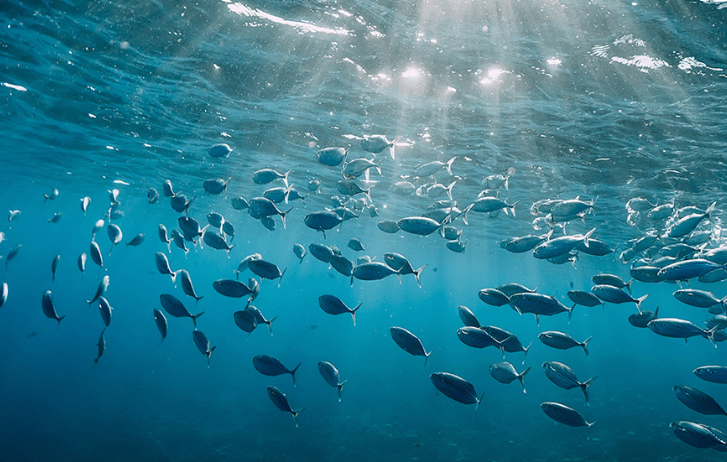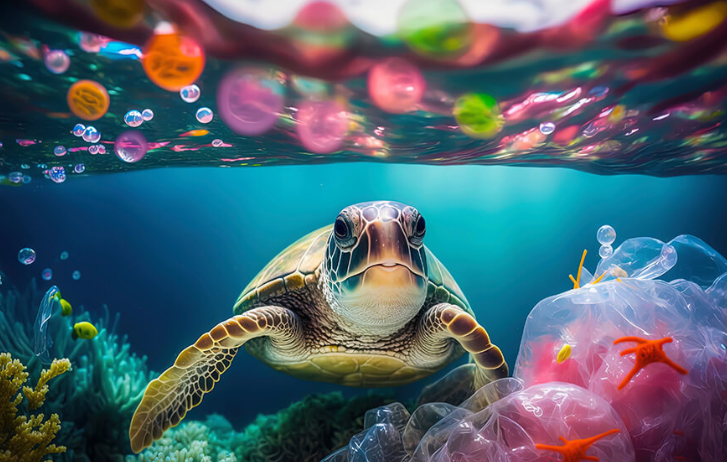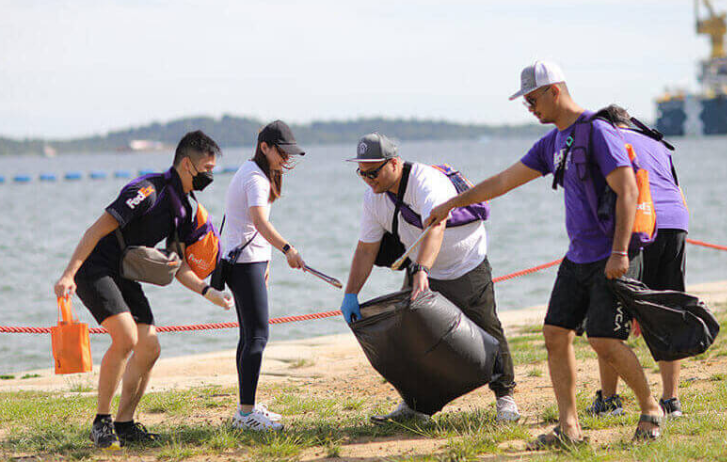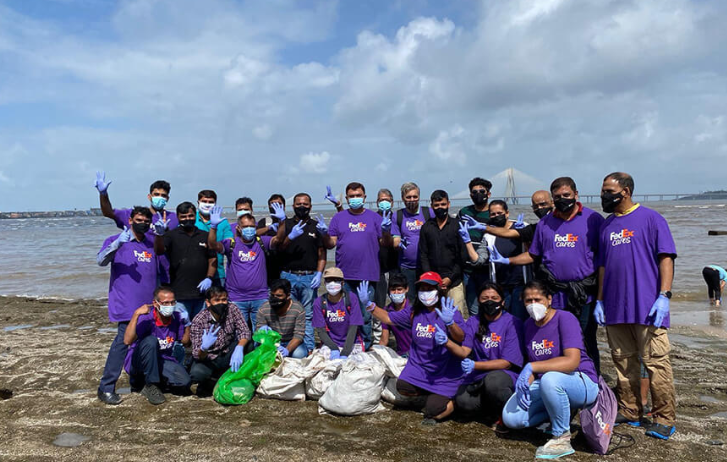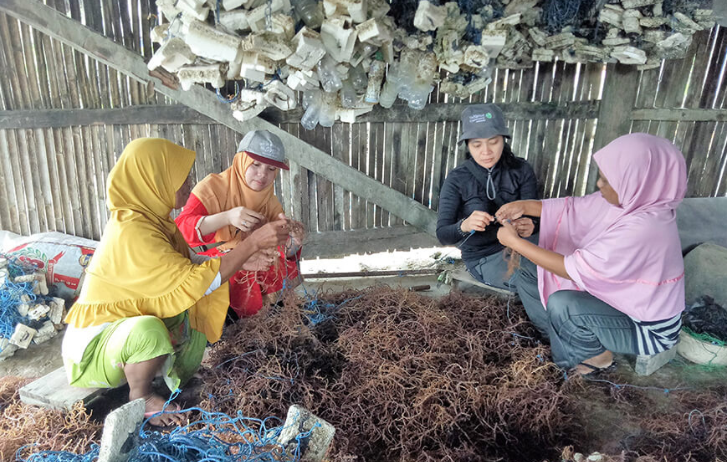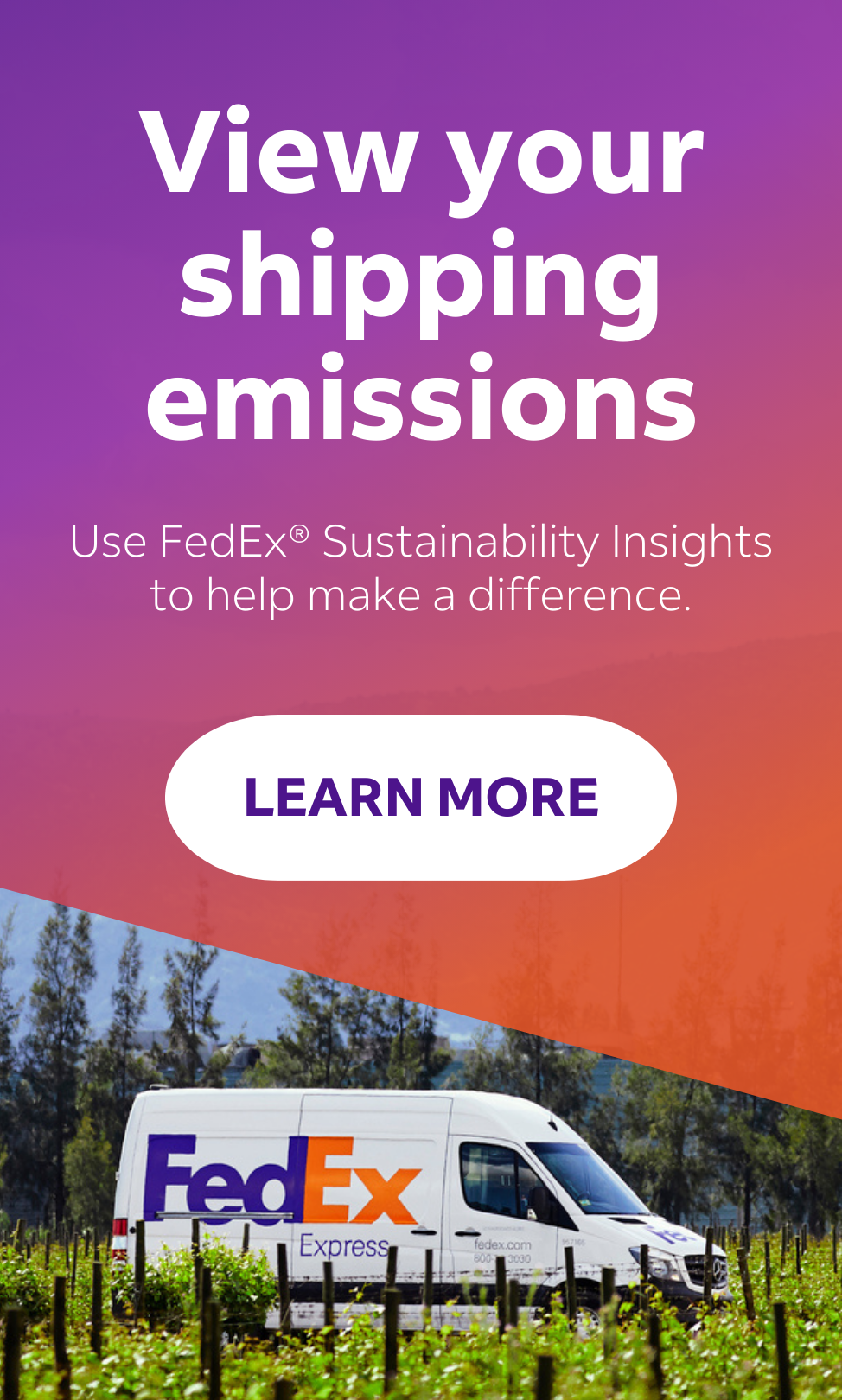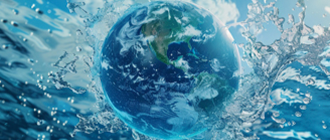
A Blue Planet: Marine Conservation In Asia Pacific
By FedEx | First published: June 8, 2023 Updated: March 20, 2024
Oceans cover the majority of our planet. By helping conserve marine life and combat environmental threats, we can all play a part to help preserve our blue planet for future generations.
We live on a blue planet, with oceans and seas making up more than 70% of the Earth’s surface. As well as supporting marine life and providing food, oceans generate roughly half of the vital oxygen we breathe.
They contribute to our economy by supporting fishing and tourism as well as international shipping and sea freight. But in recent decades, the world’s oceans have faced unprecedented threats as a result of human activity.
Issues that plague our waters range from oil spills and chemical pollution to overfishing, marine habitat destruction, plastic pollution, and in particular, climate change. Sea levels are on the rise, with Southeast Asia being one of the highest-risk regions in the world.
And global climate change is rapidly impacting marine ecosystems, altering the fragile balance of ocean ecosystems and causing coral bleaching - threats to marine life that struggle to survive at higher temperatures.
We all have a shared responsibility to protect our environment and mitigate the threats that climate change and pollution pose to the world.
Read on to find out how we’re working with our team members, communities, and customers to help clean up our beaches and oceans while raising awareness on conservation across the region.
Cleaning up our beaches and shorelines
Every year, an estimated 8-10 million tons of plastic finds its way into our seas. And it’s estimated that 81% of ocean plastics come from Asian rivers.
Beach clean-ups help to protect marine biodiversity by removing plastic waste from our beaches. Keeping our beaches clean prevents more waste from entering the ocean, supports local tourism industries and improves the livelihoods of those who live and work in coastal areas.
Across Asia Pacific, our teams have been joining in the fight against plastic pollution. In 2022, over 450 FedEx volunteers and their family members participated in a series of beach clean ups covering 21 beaches across Australia, India, Japan and Singapore, putting in about 870 hours of hard work and removing an estimated 142,000kg of garbage and plastic.
In 2023, to mark FedEx’s 50th anniversary, team members organized beach clean-ups across the region to reduce waste and build cleaner coastal communities.
In Thailand, teams came together to help raise awareness about coastal conservation and the importance of reducing marine pollution. An estimated 428 kilotons of plastic waste disposal is mismanaged every year in the country. 47% of that waste ends up in the rivers and is discharged into the sea, harming marine life and ecosystems.
Our ‘For Sea the Future’ initiative combines physical exercise with environmental stewardship to help Thai communities clean up their shorelines. At our last event, 75 volunteers participated in a beach ‘plogging’ activity to pick up litter while jogging. In total, 217 kilograms of plastic waste was collected and removed from Napa Tharaphirom beach, southeast of Bangkok.
In India, our long-term collaboration with United Way Mumbai has seen team members engage in beach clean-ups and mangrove forest restoration to help preserve coastal areas important for biodiversity and habitat protection.
Investing in marine culture and biodiversity
Another area of focus is educating communities on the importance of marine conservation and supporting efforts to regenerate coastal areas. In Indonesia, we’re collaborating with Yayasan Konservasi Alam Nusantara (YKAN), a non-profit marine life conservation organization. Our goal is to drive a positive shift in the community’s attitude towards the environment and build their potential as global entrepreneurs.
We’re working with seaweed farmers in Wakatobi, an archipelago of 150 islands vulnerable to environmental damage, which can lead to the degradation of the area’s rich biodiversity.
Climate issues impact not only the quality of marine life in the surrounding islands, but also the livelihood of seaweed farmers within the community. As one of the largest seaweed producers in Indonesia, seaweed cultivation in Wakatobi provides significant economic opportunities for the residents.
Our program in Wakatobi focuses on two key areas: responsible use of marine resources and a shift towards cross-border e-commerce. To help farmers leverage e-commerce, our FedEx volunteers developed a training module on the basics of digital marketing, cross-border e-commerce, and suitable shipping methods for exporting their seaweed products. The program aims to benefit about 270,000 families and 33,000 seaweed farmers.
Empowering sustainable small businesses
As a champion of entrepreneur culture and SME innovation, we’re proud to support SMEs who are making sustainability the heart of their businesses. Some of the work our customers do directly supports efforts to preserve the beauty and biodiversity of our oceans.
For example, The Plastic Flamingo is a social enterprise in the Philippines tackling plastic waste through responsible waste collection and recycling.
As a coastal nation of more than 7,500 islands, Philippine marine biodiversity and fishing, shipping, and tourism industries are especially vulnerable to the impact of marine debris and pollution. The Plastic Flamingo works to tackle the country’s plastic crisis and create useful upcycled products such as furniture, household items and emergency shelters.
Singapore-based small business Liviri is also tackling single-use plastic waste – much of which ends up in our oceans – with reusable alternatives. We collaborated with Liviri on a project to use the FedEx Packaging Lab to test prototypes of reusable packaging.
At FedEx, we know that building a sustainable future doesn’t happen overnight. It requires a collective behavioral change. Besides working hard to achieve our goal of carbon neutral operations by 2040, we’re also actively building meaningful programs and working with team members and customers to address pressing environmental issues across the globe.
For more sustainability stories, visit our Sustainability page here.
SHARE THIS STORY
- Generative AI: A New Frontier
- Where Do Old Planes Go When They Retire?
- How To Make Freight Shipments Work For Your Small Business
- The Rise Of Intra-Asia Trade: Opportunities In The China-Southeast Asia Corridor
- What’s So Dangerous About Coconuts? Your Guide To Dangerous Goods Logistics
- How To Ship A Giant Panda
Sign up now and save on your shipping rates!
Sign up now and earn discounts by shipping instantly with FedEx Ship ManagerTM at fedex.com.
Recommended For You

Why E-Commerce Should Embrace The Circular Economy
Natasha Parmanand of FedEx explores how reverse logistics and the circular economy are essential for e-commerce companies with sustainability goals.
Read More
How We Recycled Old Uniforms Into New Caps In Thailand
At FedEx, we’re working hard to put sustainability at the center of our business.
Read More
Why Supply Chains Need To Help Combat Climate Change
Sustainable supply chains and responsible operations are essential for small businesses to win over climate-conscious customers.
Read More